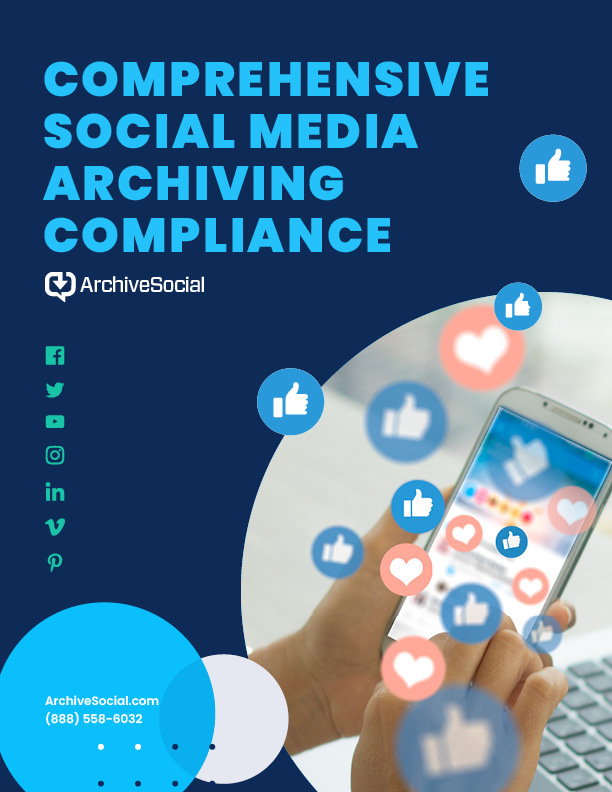During a recent GovTech webinar, Julie Tappendorf, a Chicago, IL based attorney practicing in the areas of social media and local government law, gave us a few tips on ethical issues involved in government use of social media.
Tappendorf identified major questions that government agencies should be asking concerning social media, such as: Is it a public record, and should it be retained? How can agencies lawfully and ethically control the conversation on social media? How can governments protect themselves while also protecting free speech?
Tappendorf suggests consulting your own state and local statutes for clarification, but advises: “Across the country, and certainly in Illinois, [social media] probably is a public record…if [the government] is creating the content and posting it out there, then it’s probably a public record, both for the purposes of the Freedom of Information Act, and for records retention.”
Simply put, if a government agency is communicating via social media in any official capacity, those communications could be considered public record – and records have to be retained. According to Tappendorf, a plan for retention of these records is a key component of any social media strategy. She notes that special consideration must be given to the fluidity of social media.
“If your FOIA requires you to release records pursuant to a request, how do you release them if you don’t have them anymore? Control over a social media site is so different than a static website. If you have a website, you control the content, what’s on there, and how you retain it; Facebook doesn’t allow that kind of control. You don’t know what’s going to show up in your timeline, you don’t know how long it will be available. If state retention laws require you to retain them, and some do, you need to plan for that.” In other words, communications need to be captured by the government agency, because social media platforms can’t be relied on to keep them.
On the subject of comment moderation, Tappendorf advises against outright censorship. However, agencies don’t have to allow just anything on their social media sites. She clarifies: “That doesn’t mean you can’t remove comments at all, it just means you can’t censor protected speech – you have to be very careful about just removing comments from your site.”
“Just because an agency doesn’t like everything that shows up on a social media site, that doesn’t mean they can just get rid of it,” Tappendorf explains.
“Government doesn’t have that freedom, because of the 1st Amendment and the right of free speech – we have to be careful what we do as government in moderating and monitoring social media.” She goes on to say that threatening speech, hate speech, or discriminatory speech does not have to be tolerated on a government site, but comments can’t just be removed every time someone says something negative about the city, agency, an official, etc.
This doesn’t just apply to the public’s comments, it also applies to what can be asked of employees regarding their behavior on social media. According to Tappendorf, “Employees will behave badly on social media…I have a million examples. Why does it matter? You are the ones that are going to get sued or have to take some disciplinary action against an employee.” Tappendorf emphasizes that while there should be a policy to address conduct on an employer’s sites, you must be careful about restricting or disciplining employee’s protected speech.
So how can government agencies navigate these responsibilities to preserve, produce, and ethically control the conversation on social media? Tappendorf suggests creating a comprehensive social media policy. She recommends that you begin with a purpose statement, explaining the rationale for how and why social media is being used, such as disseminating information to the public, for example. It should also be made very clear what kind of comments will be allowed, so if and when the site must be moderated, people know what to expect and the agency is not engaging in censorship.
“It’s important to adopt a social media policy, and for you to be able to provide people with guidelines on what is permitted and what is not permitted – if you are providing notice about what people can or can’t do, you are being proactive and not engaging in censorship, violating the constitution and ending up in court.”
Tappendorf also notes that once a policy is in place, it’s important to put the right people in charge of administering social media, specifically, not an intern or part-time employee. Also, training, Tappendorf says, is key.
“Train the people that moderate social media sites…train employees that may not have anything to do with your government sites, but are engaging in activities that affect the government.”
Creating a policy for social media which includes recognizing social media as public record, planning for retention, taking proactive measures to control the conversation in an ethical manner, and training staff on the policy enables successful and ethical government use of social media.
Interesting in creating a policy for your agency? Download a free Social Media Policy Template.
For further guidance on comment moderation, download our complementary Content Moderation Guide


